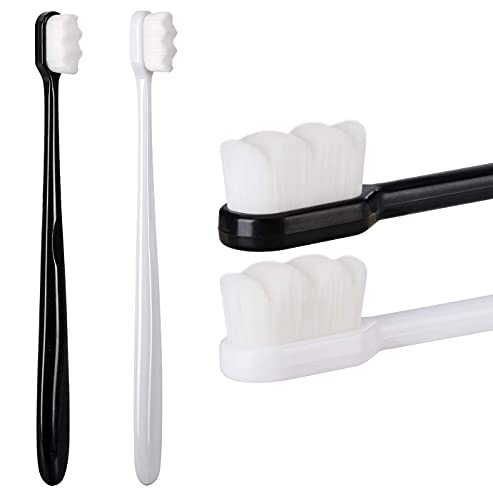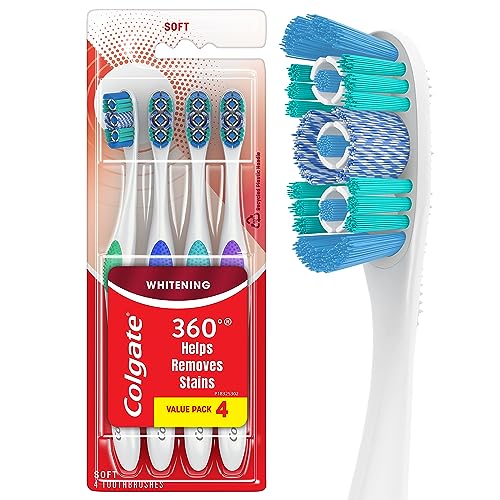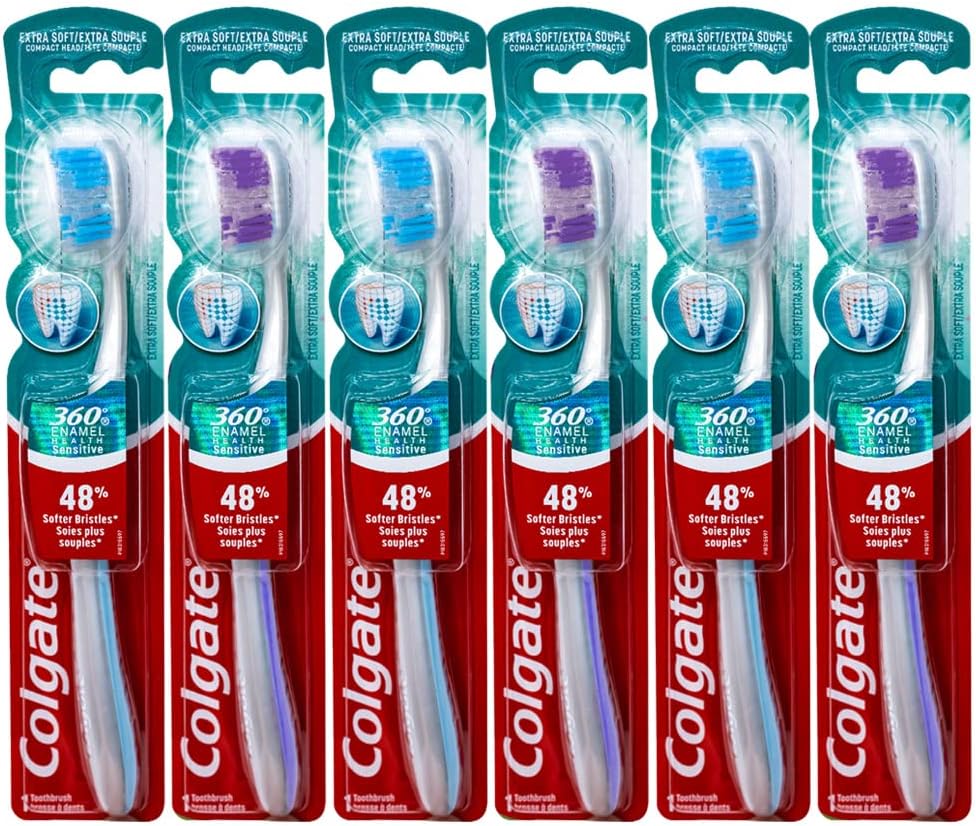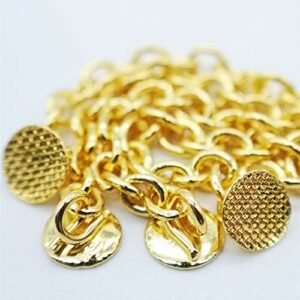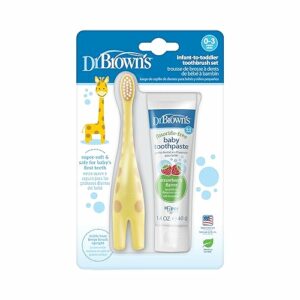We understand that taking care of our oral health is important to all of us. We know that finding the right toothbrush can be a challenge, especially when there are so many options available. That’s why we want to talk to you today about soft-bristled toothbrushes. We want to help you understand why they are a popular choice and why they might be the best option for you. So, let’s dive in and explore the benefits and considerations of using a soft-bristled toothbrush, and guide you towards finding the best one for your oral health needs.
Gentle Care for Your Teeth and Gums
Benefits of Soft-Bristled Toothbrushes
When it comes to choosing the right toothbrush, the options can sometimes be overwhelming. One important factor to consider is the bristle hardness. While medium or hard-bristled toothbrushes may seem like they would provide a more thorough clean, soft-bristled toothbrushes actually offer several advantages. In this blog section, we will explore the benefits of using a soft-bristled toothbrush and why it may be the best choice for your oral health.
Gentle and Comfortable Cleaning Experience
One of the primary benefits of using a soft-bristled toothbrush is the gentle and comfortable cleaning experience it provides. The soft bristles are less abrasive on your gums and tooth enamel compared to medium or hard-bristled brushes. This reduces the risk of gum irritation and enamel erosion, which can occur with more aggressive brushing.
Effective Plaque and Bacteria Removal
Contrary to what one might think, soft-bristled toothbrushes are just as effective, if not more so, in removing plaque and bacteria. The soft bristles are designed to be more flexible, allowing them to reach those hard-to-reach areas in your mouth with ease. This flexibility enables the bristles to get into the nooks and crannies between your teeth and along the gumline, where plaque and bacteria tend to accumulate. By effectively removing these harmful substances, soft-bristled toothbrushes contribute to better oral hygiene.
Less Damage to Gums and Enamel
One of the reasons why soft-bristled toothbrushes are recommended by dental professionals is their ability to minimize damage to your gums and enamel. Medium or hard-bristled brushes can cause gum recession and even lead to tooth sensitivity over time. Soft bristles, on the other hand, are more forgiving and less likely to cause harm when used correctly. By choosing a soft-bristled toothbrush, you can ensure the long-term health of your gums and enamel.
Suitable for Sensitive Teeth and Gums
If you have sensitive teeth or gums, a soft-bristled toothbrush is an excellent choice. The gentle bristles help to avoid aggravating any existing sensitivity or irritation. Whether you suffer from gum recession, tooth sensitivity, or other oral health concerns, a soft-bristled toothbrush can provide the care and comfort your mouth needs.
Comparison Table
Here is a comparison table highlighting the advantages of soft-bristled toothbrushes over medium or hard-bristled ones:
| Soft-Bristled Toothbrushes | Medium/Hard-Bristled Toothbrushes |
|---|---|
| Gentle and comfortable cleaning experience | Potentially abrasive, leading to gum irritation and enamel erosion |
| Effective plaque and bacteria removal | May struggle to reach hard-to-reach areas |
| Less damage to gums and enamel | Possible gum recession and tooth sensitivity |
| Suitable for sensitive teeth and gums | May exacerbate existing sensitivity or irritation |
In conclusion, soft-bristled toothbrushes offer numerous benefits for your oral health. They provide a gentler cleaning experience, effectively remove plaque and bacteria, and minimize damage to gums and enamel. Whether you have sensitive teeth or simply prefer a more gentle approach to oral hygiene, a soft-bristled toothbrush is a wise choice. Your smile deserves the best care, and a soft-bristled toothbrush can help you achieve that.
Considerations When Choosing a Soft-Bristled Toothbrush
When it comes to oral hygiene, selecting the right toothbrush is essential for maintaining a healthy smile. Soft-bristled toothbrushes are generally recommended by dental professionals as they provide a gentle yet effective cleaning experience. However, not all soft-bristled toothbrushes are created equal. Here are a few factors to consider when choosing the right one for you:
Bristle Firmness
While soft-bristled toothbrushes are generally suitable for most individuals, it’s important to find one that strikes the right balance between softness and stiffness. Too soft bristles may not effectively remove plaque and food debris, while overly stiff bristles can lead to gum irritation and enamel erosion. Look for bristles that are soft enough to be gentle on your gums but firm enough to provide effective cleaning.
Size and Shape of Toothbrush Head
The size and shape of the toothbrush head play a crucial role in reaching all areas of your mouth, including those hard-to-reach spots. Consider the following when selecting a toothbrush head:
- Compact vs. Standard: Compact toothbrush heads are smaller and may be more suitable for those with smaller mouths or orthodontic appliances. Standard toothbrush heads, on the other hand, provide a larger surface area for thorough cleaning.
- Tapered vs. Rectangular: Tapered toothbrush heads are designed to easily reach the back of your mouth and clean around molars. Rectangular heads, on the other hand, may be more suitable for those who prefer a broader brushing surface.
Handle Grip
The handle grip of a toothbrush is often overlooked, but it plays a significant role in ensuring optimal comfort and control during brushing. Look for a handle that is easy to grip and maneuver, reducing the chances of accidentally injuring your gums. Some features to consider include:
- Ergonomic Design: Toothbrushes with ergonomic handles are designed to fit comfortably in your hand, providing enhanced control and reducing hand and wrist strain.
- Rubberized Grips: Toothbrushes with rubberized grips offer additional slip resistance, ensuring a secure hold even when wet.
Additional Considerations
While the above factors are important, there are a few additional considerations that may influence your decision:
- Brand Reputation: Opt for toothbrushes from reputable brands known for their commitment to quality and dental health.
- ADA Seal of Acceptance: Look for toothbrushes that have earned the American Dental Association’s (ADA) Seal of Acceptance. This ensures that the toothbrush has undergone rigorous testing and meets the ADA’s standards for safety and effectiveness.
- Replaceable Brush Heads: Some toothbrushes offer replaceable brush heads, allowing you to simply replace the bristles when they become worn out, rather than purchasing a whole new toothbrush.
By carefully considering these factors, you can choose a soft-bristled toothbrush that suits your individual needs, ensuring effective cleaning, optimal comfort, and improved oral health. Remember to replace your toothbrush every three to four months or sooner if the bristles become frayed or worn out. Happy brushing!
Tips for Proper Usage and Maintenance
Maintaining good oral hygiene is crucial for overall health, and using a soft-bristled toothbrush is an excellent way to promote healthy teeth and gums. However, it’s not just about having the right toothbrush – it’s also important to use proper brushing techniques and to take care of your toothbrush itself. In this blog section, we will discuss some valuable tips for using and maintaining your soft-bristled toothbrush effectively.
1. Gentle Circular Motions
When it comes to brushing your teeth, it’s not about how hard you brush but rather the techniques you use. To maximize the benefits of a soft-bristled toothbrush, it’s essential to brush gently in circular motions. This gentle technique helps to remove plaque and food particles without causing damage to your teeth and gums. Remember, the goal is to be thorough but gentle.
2. Replace Every Three to Four Months
Did you know that toothbrushes wear out over time? The bristles become frayed and less effective at removing plaque, which is why it’s crucial to replace your toothbrush regularly. As a general rule of thumb, aim to replace your soft-bristled toothbrush every three to four months. However, if you notice that the bristles are already frayed or worn before this time, it’s best to replace it sooner. By doing so, you ensure that your toothbrush remains effective in maintaining good oral health.
3. Caring for Your Toothbrush
Taking proper care of your toothbrush is just as important as using it correctly. Here are some essential tips for maintaining your soft-bristled toothbrush:
- Rinse thoroughly: After brushing, rinse your toothbrush thoroughly with tap water to remove any remaining toothpaste or debris.
- Store upright: Allow your toothbrush to air dry upright in a well-ventilated area. This prevents the growth of bacteria that thrive in moist environments.
- Avoid sharing: To prevent the spread of bacteria and viruses, avoid sharing your toothbrush with others.
- Keep it separate: Store your toothbrush away from other toothbrushes to prevent cross-contamination.
- Avoid covering: Although it may seem hygienic, covering your toothbrush can promote bacterial growth due to the lack of airflow. It’s best to leave it uncovered.
Benefits of Proper Usage and Maintenance
By following the tips mentioned above, you can experience several benefits:
- Improved oral health: Using a soft-bristled toothbrush with proper techniques helps remove plaque and prevent gum diseases such as gingivitis and periodontitis.
- Long-lasting toothbrush: Replacing your toothbrush regularly and taking care of it ensures that it remains effective for a longer period.
- Cost-effective: By prolonging the lifespan of your toothbrush, you save money by not having to replace it as frequently.
- Prevents bacterial growth: Proper maintenance of your toothbrush helps prevent the growth of bacteria, maintaining good oral hygiene.
Remember, a soft-bristled toothbrush, when used correctly and maintained properly, is a valuable tool in maintaining your oral health. By implementing these tips into your daily routine, you can ensure that your toothbrush remains effective, keeping your smile healthy and bright.
Recommended Soft-Bristled Toothbrush Brands
Maintaining good oral hygiene is essential for a healthy smile, and choosing the right toothbrush plays a crucial role in this. Soft-bristled toothbrushes are generally recommended by dentists as they are gentle on the gums, minimizing the risk of gum recession or enamel erosion. In this blog section, we will explore some popular soft-bristled toothbrush brands that you can consider for your dental care routine.
Brand A: Innovative Designs and Ergonomic Handles
- Innovative designs: Brand A is known for its commitment to innovation in toothbrush design. They offer unique features that enhance the brushing experience and ensure optimal oral health.
- Ergonomic handles: Their toothbrushes are designed with ergonomic handles that provide a comfortable grip and better control during brushing.
- Durability: Brand A toothbrushes are made with high-quality materials, ensuring durability and longevity.
Brand B: Wide Range of Soft-Bristled Options
- Catering to different preferences and needs: Brand B understands that everyone has different oral health needs and personal preferences. They offer a wide range of soft-bristled toothbrushes to cater to various requirements.
- Different bristle types: Brand B provides toothbrushes with different bristle types, such as extra-soft, tapered, or rounded bristles, allowing you to choose the one that suits your needs best.
- Size options: They also offer toothbrushes in different sizes, including compact and regular, to accommodate various mouth sizes.
Choosing the Right Toothbrush for You
While these brands offer excellent soft-bristled toothbrush options, it’s important to remember that the best toothbrush for you depends on your individual oral health requirements and personal preferences. Here are some factors to consider when making your decision:
- Bristle softness: Soft bristles are generally recommended, but if you have specific dental conditions, such as sensitive gums, you may prefer extra-soft bristles.
- Brush head size: Choose a toothbrush with a brush head size that comfortably fits in your mouth and reaches all areas of your teeth.
- Handle design: Look for a toothbrush with an ergonomic handle that provides a comfortable grip for easy maneuverability during brushing.
- Brand reputation: Consider brands with a good reputation for quality dental care products and positive customer reviews.
When it comes to your oral health, investing in a good toothbrush is essential. By choosing a soft-bristled toothbrush from a reputable brand, you can ensure gentle and effective cleaning that promotes healthier teeth and gums.
Remember, regular brushing, along with flossing and routine dental check-ups, are key to maintaining optimal oral health. Consult with your dentist to determine the best toothbrush for your specific needs and maintain a consistent dental care routine for a brighter, healthier smile.
Note: This is a general guide, and it’s always advisable to consult with your dentist for personalized recommendations and advice.
Sources:
- Brand A: Toothbrushes for Optimal Oral Health
- Brand B: Soft-Bristled Toothbrushes for Every Need
The importance of gentle dental care and choosing the right toothbrush
In conclusion, we have learned that soft-bristled toothbrushes are a great choice for gentle and effective cleaning. They provide numerous benefits and promote proper oral hygiene. When selecting a soft-bristled toothbrush, it is crucial to consider factors like bristle firmness, head size, and handle grip to ensure it suits your needs. It is also important to practice proper usage and maintenance techniques to maximize the lifespan and effectiveness of your toothbrush. If you have any doubts or questions, don’t hesitate to consult with your dentist or dental hygienist for personalized recommendations. Keep up the good work and happy brushing!


